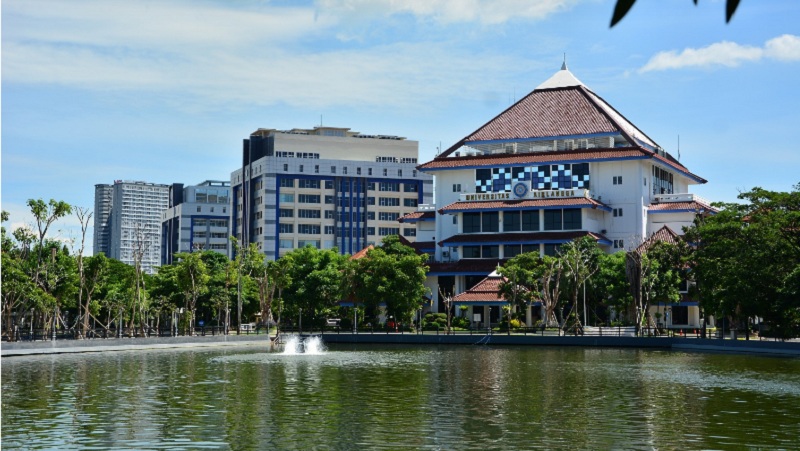As global efforts to achieve the Sustainable Development Goals (SDGs) face mounting financial shortfalls, universities across Asia are emerging as key players in sustainable finance. The Times Higher Education (THE) Impact Rankings 2025 highlight a growing presence of Asian institutions in sustainability leadership, with 22 of the top 50 universities now coming from the region—an 83 percent increase from the previous year.
This shift comes at a critical moment. According to the UN Sustainable Development Report 2024, only 15 percent of SDG targets are on track, while more than 30 percent show stagnation or decline. The financing gap is particularly severe in emerging economies, where governments struggle to mobilize resources for climate action, education, and infrastructure. Universities, traditionally seen as knowledge producers, are now being recognized for their role in sustainable finance, bridging research with policy and investment strategies.
Higher education and the SDG financing gap
Meeting SDG targets requires more than institutional commitment—it demands financing on a scale that traditional sources are unlikely to deliver. According to Indonesia’s Ministry of National Development Planning (Bappenas), the country faces a funding shortfall of 1.7 trillion US dollars by 2030 to meet its SDG commitments. Similar gaps exist across Southeast Asia, where declining international aid and rising fiscal pressures have forced governments to seek alternative financing mechanisms.
Universities are increasingly stepping into this space. Academic research centers contribute to the design of financial taxonomies, ESG standards, and impact measurement tools, helping governments and investors align funding with sustainability goals. Institutions are also engaging in green bonds, sustainability-linked loans, and blended finance models, providing expertise in structuring financial instruments that attract both public and private capital.
Asia’s universities as financial and policy actors
The THE Impact Rankings assess universities based on their contributions to the United Nations SDGs, measuring research, teaching, stewardship, and outreach. While traditional academic rankings have long been dominated by institutions in North America, the United Kingdom, and Australia, the Impact Rankings reveal a shifting landscape. Asian universities are increasingly setting benchmarks in sustainability and social impact, leveraging their expertise to influence policy and investment decisions.
In Indonesia, universities are collaborating with development banks, regulators, and ministries to build capacity and provide evidence-based recommendations for sustainable finance. Research centers at institutions such as Universitas Airlangga, Universitas Indonesia, Institut Teknologi Bandung, and Universitas Gadjah Mada have contributed to policy frameworks on carbon pricing, renewable energy investment, and climate finance governance also child protection through Islamic social finance.
Beyond research, universities also facilitate training for government officials and financial professionals, ensuring that sustainability principles are integrated into national and corporate financial planning. Their role in convening public and private actors is critical, especially in a fragmented policy environment where coordination between stakeholders remains a challenge.
The role of universities in financing for development
Recognizing the growing influence of higher education in sustainable finance, the United Nations has included an Academic Day in the Fourth International Conference on Financing for Development (FFD4), scheduled for July 2, 2025. This marks the first formal participation of universities in global development financing discussions, where they will present research on financing strategies and enabling conditions for SDG investment.
The inclusion of universities in FFD4 reflects a broader recognition that higher education institutions are not just passive recipients of funding but active contributors to financial innovation. Their ability to generate knowledge, test financial models, and engage with policymakers positions them as critical actors in shaping the future of sustainable finance.
Education access and equity in sustainable development
Sustainable finance is closely tied to education access, particularly in emerging economies. In Southeast Asia, gross tertiary enrollment rates vary widely. According to UNESCO, Malaysia exceeds 40 percent, Indonesia hovers around 36 percent, and Cambodia falls below 20 percent.
Structural barriers persist, including declining international aid, rising tuition costs, and limited digital infrastructure. Universities are not immune to these challenges, but they retain a level of independence and public credibility that allows them to advance inclusive policies. Many institutions are expanding need-based scholarships, integrating community engagement into curricula, and promoting open-access research to extend knowledge beyond campus boundaries.
Outlook: Universities as long-term financial actors
The growing presence of Asian universities in sustainability rankings is more than symbolic—it signals a shift toward embedding sustainable finance within academic and institutional priorities.
Visibility alone does not guarantee lasting impact. Long-term success depends on strategic alignment rather than short-term projects or publicity-driven initiatives. Universities cannot solve development challenges alone, but they offer a unique capacity: they generate knowledge, test financial models, and share insights across sectors.
In a world of limited financial resources and increasingly politicized data, this contribution may become one of Asia’s most valuable assets in global development.
Bayu Arie Fianto is an Associate Professor at Universitas Airlangga and President of the Indonesia SDGs Center Network (ISCN). He also serves as Director of the Center for Advance Resilience and Inclusive Studies (CARE) and has advised UNICEF, USAID and Bank Indonesia on sustainable finance.
Originally published under Creative Commons by 360info™.















